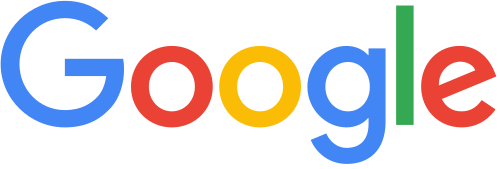About google search
Google Search, commonly referred to as Google Web Search or simply Google, is a web search engine developed by Google. It is the most-used search engine on the World Wide Web,[5] handling more than three billion searches each day.[6][7] As of February 2016, it is the most used search engine in the US with 64.0% market share.[8]
Google Search
Google 2015 logo.svg
Screenshot
Google web search.png
Google Search homepage as of September 1, 2015
Type of site
Web search engine
Available in 123 languages
Owner Google (Alphabet)
Revenue AdWords
Website Google.com (US)
IPv6 support Yes, by arrangement[1]
Alexa rank Steady 1 (November 2017)[2]
Commercial Yes
Registration Optional
Users 4.5+ billion active users
Launched September 15, 1997; 20 years ago[3]
Current status Active
Written in Python, C, C++[4]
The order of search on Google's search-results pages is based, in part, on a priority rank called a "PageRank". Google Search provides many different options for customized search, using Boolean operators such as exclusion ("-xx"), alternatives ("xx OR yy OR zz"), and wildcards ("Winston * Churchill" returns "Winston Churchill", "Winston Spencer Churchill", etc.).[9] The same and other options can be specified in a different way on an Advanced Search page.
The main purpose of Google Search is to hunt for text in publicly accessible documents offered by web servers, as opposed to other data, such as images or data contained in databases. It was originally developed by Larry Page and Sergey Brin in 1997.[3] Google Search provides several features beyond searching for words.[10] These include synonyms, weather forecasts, time zones, stock quotes, maps, earthquake data, movie showtimes, airports, home listings, and sports scores. There are special features for numbers, dates, and some specific forms, including ranges,[11] prices, temperatures, money and measurement unit conversions, calculations, package tracking, patents, area codes,[10] and language translation. In June 2011 Google introduced "Google Voice Search" to search for spoken, rather than typed, words.[12] In May 2012 Google introduced a Knowledge Graph semantic search feature in the U.S.
Analysis of the frequency of search terms may indicate economic, social and health trends.[13] Data about the frequency of use of search terms on Google can be openly inquired via Google Trends and have been shown to correlate with flu outbreaks and unemployment levels, and provide the information faster than traditional reporting methods and surveys. As of mid-2016, Google’s search engine has begun to rely on these deep neural networks.[14]
In October 2016, Gary Illyes, a webmaster trends analyst with Google, announced that the search engine will be making a new, primary web index dedicated for mobile, with a secondary, less up-to-date index for desktop use. The change is a response from the continued growth in mobile, and a push for web developers to adopt a mobile-friendly version of their websites. Illyes stated the change will happen in "months".[15]
Competitors of Google include Baidu and Soso.com in China; Naver.com and Daum.net in South Korea; Yandex in Russia; Seznam.cz in the Czech Republic; Yahoo in Japan, Taiwan and the US, as well as Bing and DuckDuckGo.[16] Some smaller search engines offer facilities not available with Google, e.g. not storing any private or tracking information; one such search engine is Ixquick.